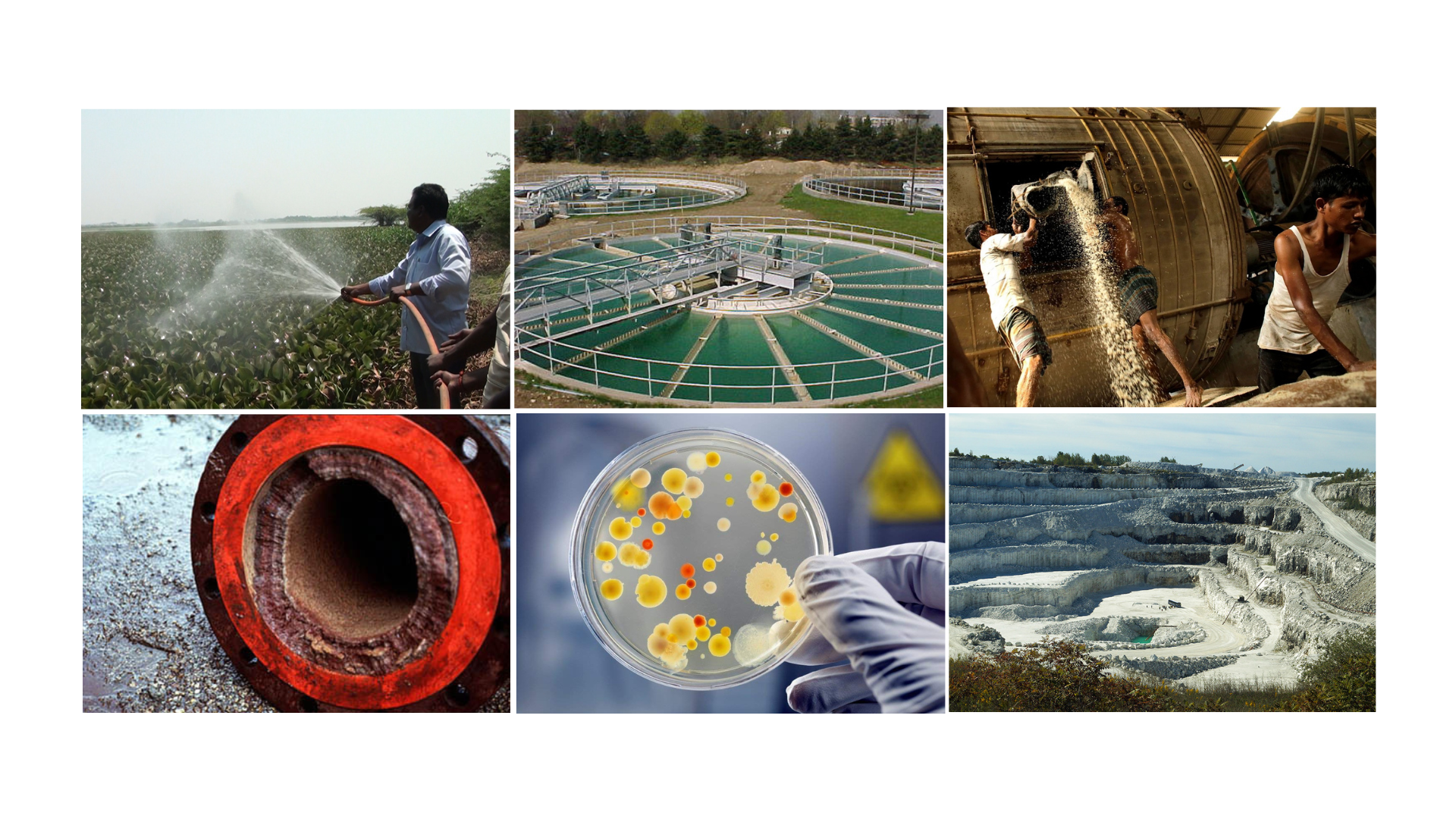Harnessing Herbal Science: Organic Solutions for Sustainable Water and Wastewater Treatment

Introduction
Water and wastewater treatment has long been dominated by chemical-based solutions. However, with growing emphasis on sustainability and safer water practices, many industries and institutions are beginning to adopt herbal and organic reagent-based treatments. These natural solutions are derived from plant extracts and formulated to meet the demands of modern treatment systems, providing an effective alternative that is safer for people, processes, and the planet.
This article explores the potential of herbal formulations in water and wastewater treatment, their applications across various sectors, and the measurable environmental and operational benefits they bring.
The Herbal Approach to Water Treatment
Herbal formulations, derived from botanical sources like neem and other medicinal plants, are being developed to address key treatment needs — including coagulation, flocculation, disinfection, odour control, anti-scaling, and pH adjustment. Their inherent properties make them non-toxic, non-corrosive, and biodegradable, which significantly reduces the risks associated with traditional chemical handling and disposal.
By using these herbal alternatives, facilities can manage water quality without compromising safety, operational integrity, or environmental responsibility.
Applications Across Treatment Functions
One of the core strengths of herbal reagents lies in their versatility.
- Coagulation and Flocculation: Natural coagulants and flocculants are effectively used in effluent treatment plants (ETPs) across sectors such as textiles, food processing, and pharmaceuticals. These agents help in removing color, suspended solids, and organic loads while producing less sludge.
- Anti-Scaling Treatments: In systems prone to scaling — such as boilers, cooling towers, and heat exchangers — herbal anti-scalants offer a preventive solution. These formulations reduce scaling potential and help maintain thermal efficiency, all while being gentle on equipment.
- Odour Control and Disinfection: Facilities such as sewage treatment plants, public sanitation facilities, and waste yards benefit from safer air quality using herbal disinfectants. These formulations are effective in odour elimination and microbial control.
- pH Neutralisation: Plant-based pH neutralisers are used in industries requiring careful pH management. These agents balance water pH safely without elevating TDS or leaving harmful residues.
- Water Body Restoration: In ponds, tanks, and lakes, herbal formulations aid in ecological restoration by managing eutrophication, suppressing invasive aquatic growth, and controlling mosquito breeding in stagnant waters.
Industries Benefiting from Herbal Water Solutions
Pharmaceutical companies are embracing these solutions to maintain compliance without introducing additional chemical load. Textile processors use herbal flocculants to treat dye-laden effluent more sustainably. Leather tanneries appreciate the reduced exposure risks for workers, while food processing plants benefit from safer, non-toxic disinfection methods.
In hospitality and institutional setups, these reagents have improved washroom hygiene and drainage maintenance. For local governance bodies, these products support lake clean-up drives, STP performance, and municipal sanitation campaigns.
Environmental and Operational Benefits
The environmental advantages are clear:
- Fully biodegradable formulations
- No residual toxicity in treated water
- Reduction in BOD and COD levels
- Improved suitability for water reuse and discharge
From an operational standpoint:
- Lower chemical procurement and handling costs
- Less equipment wear due to non-corrosive properties
- Simplified sludge management
- Alignment with ESG and green compliance goals
Easy Integration and Compatibility
One of the key strengths of herbal water treatment solutions is their ease of integration. Most formulations can be introduced into existing systems without requiring major mechanical or civil changes. They work well with dosing systems already in place and do not interfere with the performance of other equipment.
Because they are stable, safe to store, and effective in both batch and continuous dosing systems, these reagents are suitable for both large industrial plants and smaller institutions.
Field Performance and Adoption
Facilities across southern and western India have already adopted herbal water treatment systems with promising results.
- Operators observed visibly cleaner discharge water
- Faster settling and reduced sludge volume
- Significantly less odour in processing areas
- Improved safety for plant personnel
These success stories reflect the growing confidence in nature-based solutions for complex water management challenges.
Conclusion
Herbal and organic reagent-based treatment methods offer a holistic solution to water and wastewater management. Without relying on aggressive chemicals, these products help industries maintain water quality, protect infrastructure, reduce environmental impact, and ensure regulatory compliance.
As the focus shifts toward responsible and sustainable operations, natural water treatment solutions are becoming an integral part of forward-thinking environmental strategies.

